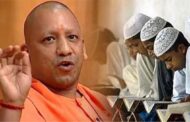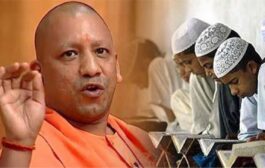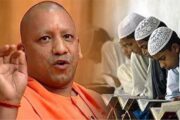It is obvious there is a point of diminishing returns for every act, good or bad. Modi is clearly at that point. It is bad for him. But it is good for much of the rest of the country
 Of late, things do not seem to be going right for Prime Minister Narendra Modi. He has lost practically every election barring the by-election to Palghar in Maharashtra in 2018. None of his government decisions seems to have come out right. His snarky comments against Opposition leaders, particularly Sonia Gandhi and Rahul Gandhi, have not gone down well with the masses and he has clearly failed to rid the country of a resurgent Congress. And, his leadership of the BJP is no longer absolute or unchallenged.
Of late, things do not seem to be going right for Prime Minister Narendra Modi. He has lost practically every election barring the by-election to Palghar in Maharashtra in 2018. None of his government decisions seems to have come out right. His snarky comments against Opposition leaders, particularly Sonia Gandhi and Rahul Gandhi, have not gone down well with the masses and he has clearly failed to rid the country of a resurgent Congress. And, his leadership of the BJP is no longer absolute or unchallenged.
The biggest threats to the shaky pedestal Modi finds himself standing on are Congress president Rahul Gandhi and Union Minister Nitin Gadkari. According to sources, Modi has not been on talking terms with Gadkari for weeks now and BJP president Amit Shah has been apparently treating the latter almost like dirt. Considering Gadkari is a former party president himself and a privileged one, for whom the RSS compelled the BJP to change its party constitution to facilitate a second term, a privilege not extended to even stalwarts like LK Advani or Murli Manohar Joshi, this has caused a lot of resentment in the Gadkari camp and even amongst the RSS top brass. That resentment is showing through various statements of Gadkari, attempting to hold the Modi-Shah duo accountable for the recent defeats in the three Hindi heartland states of Rajasthan, Madhya Pradesh and Chhattisgarh. Those statements are said to have been made with backing from the RSS.
But why is there this sudden disenchantment in the RSS about Modi and Shah? That is because of two reasons. First, the various failures of the Modi government, particularly vis-à-vis demonetisation which hit the poor, the farmers and the traders (the last, a core voter base of the BJP) badly, has turned Modi into a liability for the RSS. The organisation does not want to associate with issues that seem to go against common people and is, therefore, distancing itself from Modi, and possibly to a certain extent, the BJP.
Moreover, Modi’s rude and often obscene comments have not gone down well with the masses.
It is not coincidental therefore that Rajnath Singh this year tweeted in praise of Nehru on his birthday and Gadkari deliberately emphasised that he found Nehru’s speeches very interesting and educative
But, most importantly, the Rafale deal, which Modi is said to have personally reworked to favour Anil Ambani, has hurt the BJP badly in terms of perception and image. Modi’s 2014 victory was largely on account of a successful campaign focussed on the alleged cases of corruption of the UPA government. Now, the tables have been turned on Modi by the very man who took a severe beating from him in the last elections – Rahul Gandhi. Rahul’s coinage – of the moniker, Chowkidar Chor Hai, for Modi – has resonated well among the masses and disturbed the RSS greatly. This has even led to the organisation backing out from wholeheartedly backing Modi as it had done in 2014, some RSS insiders say.
Modi and his cohorts are attempting to use the cancelled Agusta Westland deal to turn the tables on Rahul Gandhi and the Congress. But not too many in the opposing camp believe much will come out of it, given that an Italian court has already rejected any accusations of corruption. To top it all, alleged middleman Christian Michel has not come forth with much substance, despite him spending several days in CBI custody.
Despite the desperate spin put on the situation by a section of the RSS which says Modi has actually been strengthened by the recent electoral defeats as the losses have ensured the end of a possible challenge from mass leaders like Shivraj Singh Chouhan and Raman Singh, the fact remains that there is more than one voice raised, and not just sotto voce, against Modi. Not for nothing did Union Home Minister Rajnath Singh express apprehension that his party might lose a substantial number of seats in Uttar Pradesh in the coming Lok Sabha elections. Union External Affairs Minister Sushma Swaraj declared that she would not contest the next Lok Sabha election but made it clear that she was not retiring from politics either. Even Savitribai Phule, a Dalit MP from UP who resigned from the BJP earlier last month, raised her voice against the state’s Chief Minister Yogi Adityanath’s obsession with the Kumbh Mela and the Ram temple, saying those issues would not help the party win elections.
Allies, who once upon a time did not dare challenge Modi, are also giving the party a lot of grief. In Bihar, the BJP has already conceded more seats to its partners, including seats of its sitting MPs than it was willing to part with.
The fact that Modi is not really on a strong wicket is apparent from the acts of Shiv Sena president Uddhav Thackeray who had earlier refrained from attacking Modi personally, even while going hammer and tongs against his policies. Recently, he picked up on Rahul Gandhi’s rhetoric and chose to say “Chowkidar Chor Hai” at a pro-Hindutva rally in the temple town of Pandharpur in Maharashtra. The Shiv Sena leader’s next stop on the Hindutva circuit is likely to be Varanasi where the Samajwadi Party and the Bahujan Samaj Party have already teamed up against Modi to engineer a possible defeat in the next elections. If that happens, Modi and the BJP may never recover from the ignominy of the defeat.
Coming back to the RSS, there is another significant reason why the organisation is not too keen on the continuance of Modi in the Prime Minister’s office. People in general, including many hardcore supporters, have not liked the Prime Minister taking the standard of political discourse in the country to such unforeseen lows. What in 2014 was seen as a commendable quality of a strong leader who did not mince his words, is today being seen as the mark of an uncouth boor who cannot distinguish between bazaar gossip and refined critiques of political rivals. Modi seems unable to distinguish between his role as a Prime Minister and a pracharak. The irony is that many RSS pracharaks themselves are saying that they would not go so far and as low as Modi to target political rivals.
Says one pracharak who has been working with adivasis in Chhattisgarh, “The Congress went down in the last election mostly because of its own arrogance and mistakes. Modi made the mistake of thinking it was solely his achievement. Now, I can tell you for sure that whatever happens, the Congress is sinking no further. And as long as Modi continues to target Rahul Gandhi, he strengthens the Congress because Rahul Gandhi has found a way to tackle Modi – not with fists but by turning the other cheek.”
He could be right that Rahul Gandhi’s civilised conduct in the face of Modi’s profanity is putting off even the BJP’s core voters who were won over earlier by leaders like LK Advani on a diet of shuchita, samrasta and sabhyata. That presumption becomes reinforced when one examines the social media posts of some Modi supporters who are suddenly resentful that for four-and-a-half years, the BJP did little but abuse the Nehru-Gandhi family and blame India’s first Prime Minister for every ill facing the country.
It is not coincidental therefore that Rajnath Singh this year tweeted in praise of Nehru on his birthday and Gadkari deliberately emphasised that he found Nehru’s speeches very interesting and educative.
It is obvious there is a point of diminishing returns for every act, good or bad. Modi is clearly at that point. It is bad for him. But it is good for much of the rest of the country.
source: NH







































